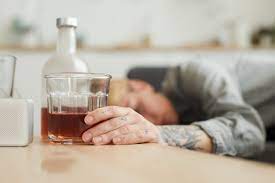When recovering from an alcohol or drug addiction, it is important to create a sober social network. This means building relationships with people who can give you support and encouragement. It also means joining recovery support groups and attending meetings regularly. Sharing the same experiences with others can help you feel less alone. Once you’ve completed treatment, you may want to continue to meet with these groups to stay sober.
 Treatment for alcohol use disorder can involve inpatient and outpatient programs. Inpatient rehab involves living in a treatment facility for up to 90 days and includes group and individual counseling. Partial hospitalization programs involve attending hospital visits for a few hours a day or for three to four days each week. Intensive outpatient programs, on the other hand, are a little more flexible and are geared toward maintaining sobriety. During these programs, patients learn the skills necessary to stay sober and to live a sober life. check out the post right here now.
Treatment for alcohol use disorder can involve inpatient and outpatient programs. Inpatient rehab involves living in a treatment facility for up to 90 days and includes group and individual counseling. Partial hospitalization programs involve attending hospital visits for a few hours a day or for three to four days each week. Intensive outpatient programs, on the other hand, are a little more flexible and are geared toward maintaining sobriety. During these programs, patients learn the skills necessary to stay sober and to live a sober life. check out the post right here now.
Typically, an outpatient program is a good choice for someone who lives in a small town or wants a discreet treatment option. Outpatient programs offer many of the same services as inpatient, but don’t require the addict to stay at the facility full-time. A good outpatient program allows the addict to be treated without disrupting their life. Some people, however, do not respond to these programs and may require an inpatient program.
The first step in an alcohol and addiction treatment program is to recognize that a drinking problem exists and that the individual wants to stop drinking. A person may realize that he or she has a drinking problem on their own, or they may realize it due to the efforts of friends and family. Sometimes, family members will stage an alcohol intervention, in which they express their concerns about the excessive drinking and begin the discussion about treatment options.
After rehabilitation, the next step is reintegration into society. While withdrawal symptoms can be scary, they can also be the catalyst for relapse, so it is important to ease back into daily life. While reintegrating into society, it is also important to find a support group. These groups will provide encouragement and guidance as you regain your sobriety.
During the second stage of alcohol detox, alcoholics often experience symptoms of delirium tremens, which occurs three to four days after the last drink. These symptoms can last a few days and are dangerous. Up to 15% of alcoholics will experience this condition. The condition is extremely serious and can lead to seizures and high temperature.
A treatment advocate can help people find the right treatment center and negotiate with insurance companies for the best coverage. This can help the treatment experience last longer and cost less. Insurance companies often change their policies every year. It is always a good idea to speak with your insurance company before choosing a treatment center, as they may try to steer you to an out-of-network option.